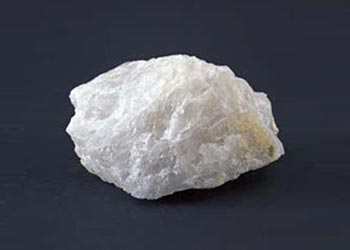Natural Resources
Grade: EN-SIL | Form: Powder Grains, Chips
Quartz Powder
Quartz is one of the most abundant minerals in igneous, sedimentary, and metamorphic rocks. Made of silicon dioxide, silica, or SiO2, it offers a variety of uses. This hard and crystalline mineral has different sizes and lustre. Quartz can be in lump form or powder may have a vitreous lustre or glossy, and may be transparent or translucent.

The Salient Features of Quartz:
- Silica Quartz Powder is available in both powder and lump form.
- Quartz is ubiquitous and plentiful.
- Due to impurities, raw and pure quartz is colourless but can appear in colours like purple, black, grey, pink, brown, green, yellow, etc.
- It has a hardness level of seven on the Mohs Scale and remains durable.
- Under consistent chemical processes, quartz glass ensures the best quality, uniformity, and reliability.
- It has a top softening point and low thermal expansion.
- It offers increased transparency in UV and infrared rays.
- Premium purity quartz offers high consistency and does not react with other chemicals.
Quartz Benefits
- This hard material is corrosion-resistant.
- Quartz white crystal remains resistant to mechanical and chemical weathering.
- Quartz is chemically inert and has a neutral PH value.
- It offers a low thermal expansion and hence, allows minimum shrinkage.
- One of the best benefits of High-Quality Quartz is low electric conductivity.
- When exposed to eutectic temperature, it can form a clear lattice structure.
- High purity Quartz develops a mature phase too.
- The material has a powerful thermal resistance. It is suitable for permanent operation at 1100° C and 1300° C for short-term operation.
Due to its piezoelectric properties, quartz white crystal is used in electronics. As it has an active sand ingredient, it is used in glass and labware. Quartz powder is also used as an abrasive material and in processes like stonecutting, sandblasting, glass grinding, etc. Quartz is also used in the lighting industry, laboratory, solar, telecommunications, semiconductor engineering, investment casting, etc.

